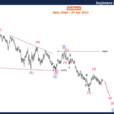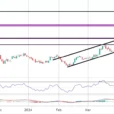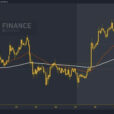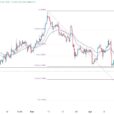The stock market does not fear nuclear war. It fears a Fed not responsive to its every need, but does not care about nuclear war. There are two solid reasons for this. And we have a scenario in which this brinkmanship played out, the 1962 Cuban Missile Crisis.
Lars Christensen coined the phrase “Market Monetarist” and claims to be one. He wrote an interesting article about the Cuban crisis. I remember the crisis. I was 13 years old. It left a mark on me and on most who lived during that time, because no one knew that the Russians and Americas would back off from nuclear destruction. The blockade of Cuba seemed to portend the imminent destruction of the world.
Christensen said this about the crisis, implying that the Fed was more lucky than good in keeping a floor under the stock market:
In 1961 US NGDP growth had been accelerating significantly – with NGDP growth going from only 0.5% y/y in Q1 1961 to 9% y/y in Q1 of 1962. That reflects a rather massive monetary expansion. However, from early 1962 a monetary contraction took place and NGDP growth started to slow significantly. This I believe was the real reason for what at the time became to be known as the Kennedy Slide in the stock market. This was prior to the Cuban missile crisis.
However, as the geopolitical crisis hit the Federal Reserve moved to ease monetary policy – initially not dramatically but nonetheless the Fed moved in a more accommodative direction and NGDP growth started to accelerate towards the end of 1962 – a few months after the end of the Cuban missile crisis. I am certain this helped keep a floor under US stock prices in the later part of 1962.
Only now, Putin is putting warships into the Mediterranean Sea. As the United States was willing to establish an act of war with the blockade, so too could Putin initiate an act of war, even firing on American targets. It all depends where, in his mind, his line is drawn in the sand.
We are closer to the end of the world, in many respects, than we were in 1962. The United States has a turbulent and unpredictable president. Russia is ruled by a man of steel, whose patience may be running out.
The Fed, as Christensen says, did well towards the end of 1962 but made mistakes after the crisis, towards the end of the 1960s. That could happen again. Jeffrey P. Snider has said that the Fed is not providing enough liquidity for the world.
As Jeffrey P. Snider has said:
It isn’t recession but far worse; another angle by which the vise of depression slowly but persistently squeezes the avenue for what little opportunity might still remain in this economy. If the auto sector goes, what truly is left as a basis for something actually different in the positive direction? It actually adds to further hysteresis weight for whatever might come next, including all those Trump policies that were supposed to at least be defined by now. In other words, if consumers who splurged for years under central banking have now come to view it more skeptically, they will in all probability evaluate future prospects from here on under the same uncertainty.













Leave A Comment